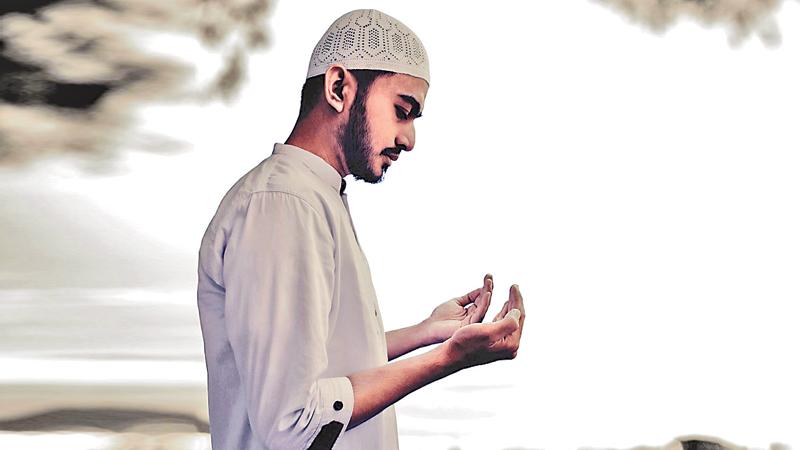
A few days from now, and Muslims all over the world will begin fasting, in observance of Ramadhan – a pillar of Islam, considered the most blessed and holiest month, when the faithful abstain from eating and drinking from dawn to dusk.
For Sri Lankans here, this will be the first Ramadhan following a pandemic and unrest which enveloped the entire nation. Albeit, like all other years, this year too will be different. What is Ramadan and how is it normally celebrated?
Ramadhan would likely start on the evening of March 22/23 and culminate on April 23. Many wonder what purpose fasting serves, among mainly, the experience of fasting is intended to teach a Muslim self-discipline and self-restraint, and understand a little of the plight of the less privileged. A Muslim will have one meal (Suhoor) just before sunrise and break the fast exactly after sunset (Iftar).
 Ramadhan for Muslims is like an intensive course intended to help him/her cultivate the essential virtues. People today live at a superficial level of existence with emphasis on the physical realm or attachment to material dimensions forgetting the identity as human beings.
Ramadhan for Muslims is like an intensive course intended to help him/her cultivate the essential virtues. People today live at a superficial level of existence with emphasis on the physical realm or attachment to material dimensions forgetting the identity as human beings.
The first few days of Ramandhan are usually difficult on the believing Muslims because it restrains the mind, body and soul to discipline ourselves.
A Muslim has to guard his tongue and restrain his anger. Do good deeds and exercise personal discipline. In Ramandhan we starve our body to feed our soul. Fasting imbues in a Muslim the genuine virtue of effective devotion, honest dedication and closeness to God; because when he fasts he does so for Allah and Allah’s sake alone.
Fasting cultivates in man a vigilant and sound conscience; because the fasting person keeps his fast a secret even in public. In fasting, there is no mundane authority to check man’s behaviour or compel him to observe fasting. He keeps it to please God and satisfy his own conscience by being faithful in secret and in public.
The last day
Eid al-Fitr, the last day of Ramadan, is considered one of the most important days for Muslims. The holiday is known as the “festival of breaking the fast.”
During the day, Muslims gather in large open spaces or mosques for special prayers, called Salat al-Eid, which are usually followed by a small breakfast -- their first daytime meal in a month. Gifts are typically exchanged and almsgiving is also a common practice. Another custom involves donning new clothes for the day, which marks a spiritual renewal.
Food is an important part of Eid al-Fitr, as feasting takes the place of fasting with community members, family and friends. This year the Ministry has advised Muslims to refrain from attending the morning prayers which herald the Festival of Eid. Muslims have been requested to refrain from visiting relations and observe these rituals at home.
 Needless to say, fasting will be vastly different from any other year we’ve experienced in our lifetime. This period in isolation has already shown us what it feels like to be detached from worldly life and the importance of a human connection. Let’s use this period productively and more spiritually than we’ve done before.
Needless to say, fasting will be vastly different from any other year we’ve experienced in our lifetime. This period in isolation has already shown us what it feels like to be detached from worldly life and the importance of a human connection. Let’s use this period productively and more spiritually than we’ve done before.
“The month of Ramadan is a blessed month, a month in which Allah has made fasting obligatory. This month contains a night greater than a thousand months. Whosoever deprives himself of the blessings of that night truly denies himself tremendously.” (An-Nisa’iee)
The night referred in the paragraph above is Laylat-ul-Qadr (meaning the Night of Power). It was during these nights in the year 610 C.E that the holy Prophet received the first of the divine revelations through the Angel Gabriel. This event is annually marked by Muslims on the odd nights of the last ten days of Ramadhan.
The end of Ramadan is marked by a festive celebration called ‘Eid-ul-Fitr’, the Festival of the Breaking of the Fast. Muslims not only celebrate the end of Ramadhan, but thanking Allah for the help and strength that he gave them throughout the previous month.
There are special services at mosques and Muslims partake in a special celebratory meal eaten during daytime.
Eid is also a time of forgiveness, and making amends. On this day, Muslims dress in their finest clothes, give gifts to children and spend time with their friends and family. At Eid it is obligatory to give a set amount of money (zakat) to charity to be used to help poor people.
